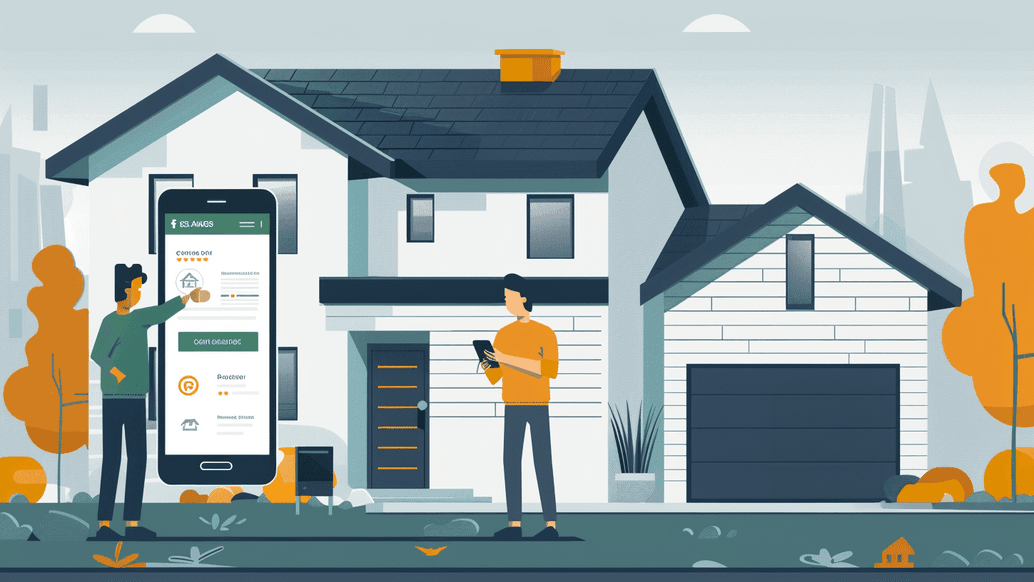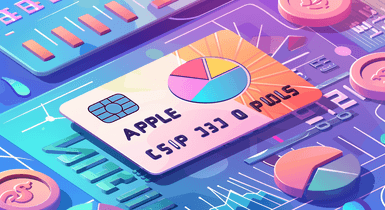What Credit Score is Good to Buy a House?
Contents

Understanding the relationship between credit scores and mortgages is a key step toward achieving the dream of homeownership. Your credit score impacts not only loan approval but also the terms of your mortgage. Therefore, exploring what is a good credit score to buy a house is your first step toward a successful purchase.
In this article, we will review the minimum credit score requirements for various types of mortgage loans and provide actionable tips to improve your credit score.
Why Is a Credit Score So Important?

Before we discuss what credit score is needed to buy a house, it’s important to understand some fundamental concepts. To put it simply, a credit score is a numerical representation of your creditworthiness, calculated based on your credit history. Key factors influencing your score include punctuality of your payments, overall debt levels, and the length of your credit history.
When applying for a mortgage loan, lenders evaluate several aspects, including employment history, income, debt-to-income ratio, the size of your down payment, and your credit score. While your score is just one of the factors considered, it holds a significant weight. Having a higher rating means that you will have a chance to get a lower interest rate and more manageable monthly payments.
Minimum Credit Score to Buy a House by Loan Types

As we continue to explore what credit score is needed to buy a home, it’s crucial to recognize that the minimum score varies based on the specific loan type. If your credit score is excellent, you’re likely in a strong position, but if it’s less than ideal, understanding the qualifying thresholds is essential.
Loan Type | Minimum Credit Score |
|---|---|
Conventional Loan | 620 |
FHA Loan | 580 (with 3.5% down payment) |
VA Loan | 620 is desirable (no set minimum by the VA) |
USDA Loan | 640 (may qualify with a lower score under certain conditions) |
Conventional Loans
The defining characteristic of these types of loans is that they are offered by loan associations and commercial banks. Possessing a high credit score greatly enhances your likelihood of getting a conventional loan. However, even with a score of 620, you may qualify by meeting other criteria, such as making a substantial down payment or earning a higher income.
FHA Loans
Loans from the Federal Housing Administration are particularly ideal for borrowers with lower credit scores. Qualifying for a loan with a credit score as low as 500 is possible if you provide a 10% down payment. On the other hand, for a smaller down payment of 3.5%, you’ll need to have at least 580 points.
VA Loans
Available to veterans and their families, VA loans are backed by the US Department of Veterans Affairs. While the VA does not set a minimum credit score, most lenders require at least 620 for approval.
USDA Loans
If you are interested in purchasing a house in a rural area, you may be interested in a loan offered by the US Department of Agriculture. The way it works is that there are specific rural areas where borrowers with low to moderate income can purchase their homes. Typically, the credit score to buy a house with a USDA loan is 640. However, if your score is lower, you might still qualify if other aspects of your financial profile demonstrate your creditworthiness.
Best Strategies to Improve Your Credit Score

Now that you know the answer to “What credit score do you need to buy a house?” you might be looking for ways to enhance your score if it falls short. Luckily, there are proven strategies to enhance your situation. Here are some valuable tips to consider.
Verify Your Credit Report for Errors
Your credit report serves as the foundation for your credit score, so if it contains any mistakes, this will be directly reflected in how high of a number you get. You have the option to access free reports from the three main bureaus—TransUnion, Equifax, and Experian. If you notice that some information is missing or is even wrong, you can dispute it by providing the right documents.
Always Pay Bills on Time
The best thing you can do is pay your bills on time without fail. Up to 35% of your credit score is determined by your payment history, so you can imagine how important it is. To avoid missing deadlines, set up automatic payments or establish monthly reminders.
Keep Your Credit Utilization Low
High credit utilization negatively affects your score. The way it is calculated is that if you have a $10,000 credit line, and you have $5,000 in debt, it means that your credit utilization is currently 50 percent. This is viewed as a high credit utilization ratio and can lower your credit score. Maintain a utilization rate below 30%.
Avoid Closing Credit Lines
If you decide to pay off your credit lines and close an account that you don’t use before applying for a mortgage, you will be unpleasantly surprised that your score has dropped. While it may seem counterintuitive, it is better to postpone closing old credit lines to avoid lowering your points.
Using a Secured Credit Card
For those with a low score looking for a starting point, obtaining a secured credit card could be beneficial. You’ll need to make a cash deposit that will establish your credit limit. It’s essential to select a card that reports to the three major credit bureaus. After acquiring the card, maintaining timely payments is key to enhancing your rating.
Final Thoughts
In summary, the credit score needed to buy a house varies based on the loan type and other factors. It’s important to note that achieving a mortgage does not always require 740 or above. Still, by understanding the connection between credit scores and mortgage opportunities, you can take steps to improve your credit profile. Paying bills on time, correcting errors, and employing other improvement strategies can lead to better loan terms, lower interest rates, and a smoother path to homeownership.




